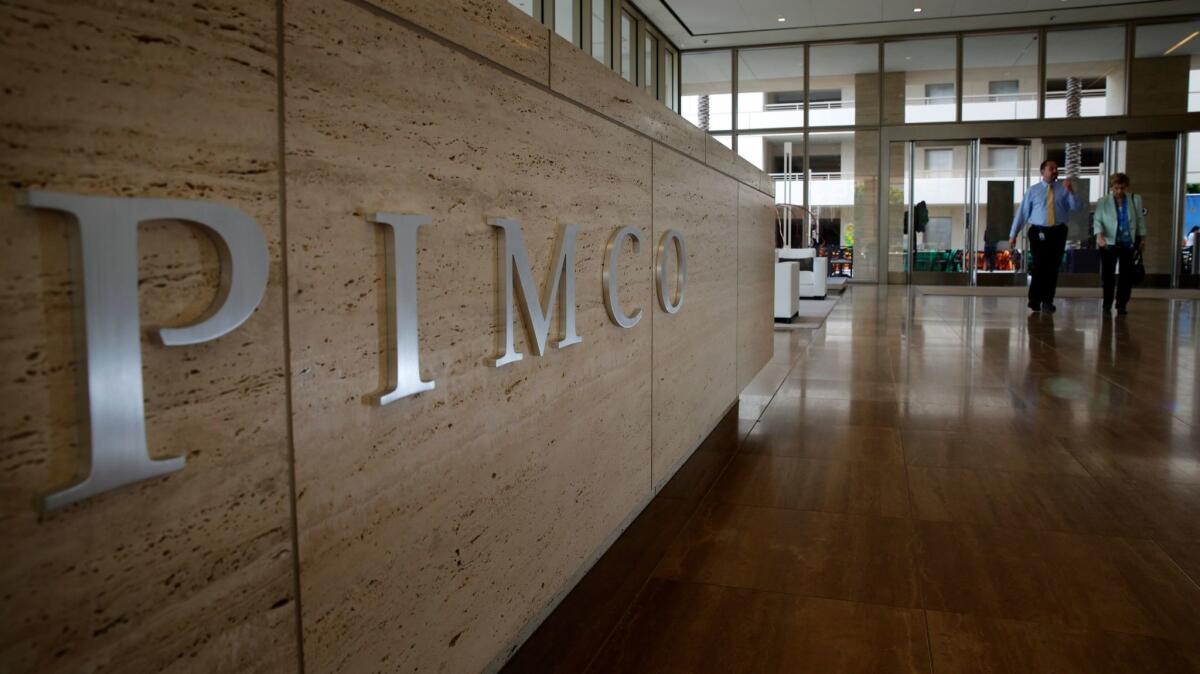Pimco to pay nearly $20 million to settle SEC charges that it misled investors

Investment giant Pimco has agreed to pay a nearly $20-million penalty to the U.S. Securities and Exchange Commission to settle charges that it misled investors about the performance of one of its earliest actively managed exchange-traded funds.
The charges stem from the firm’s Total Return ETF, a diversified bond portfolio managed by a team. After the ETF launched in 2012, it quickly garnered attention for outperforming Pimco’s flagship mutual fund, the Pimco Total Return Fund, in the first four months.
To boost the initial performance of that actively managed ETF, Pimco — which is based in Newport Beach and whose full name is Pacific Investment Management Co. — bought 156 smaller-size bonds, known in investment jargon as odd lots. But the firm overstated the value of 43 of those odd lots, which caused the fund to overvalue its portfolio and sell shares at prices that were not actually based on their net asset value, according to the SEC order.
Pimco provided “other, misleading reasons” for the fund’s early success in monthly and annual reports to investors, and it did not disclose that its odd lot strategy was not sustainable as the fund grew, according to the SEC order.
“Investment advisors must accurately describe the significant sources of performance and the strategies being used,” Andrew Ceresney, director of the SEC’s division of enforcement, said in a statement.
Pimco said it was “pleased to have resolved” the matter with the SEC and “is committed to conducting its business in a manner that meets or exceeds the expectations of its regulators.”
The firm agreed to the order but did not admit or deny the findings of the investigation, according to the SEC.
As part of the settlement, Pimco will pay $1.3 million — the amount it made in management fees for the fund for the four-month period — and $198,000 of interest, as well as a $18.3-million civil penalty. The money will go into the U.S. Treasury. The SEC order also included a cease-and-desist order to prevent Pimco from committing any of those those violations.
The firm also must hire an independent compliance consultant who is approved by the SEC but paid for by Pimco. That consultant will review the company’s policies and procedures related to odd lots, and will submit a report with findings and recommendations to both Pimco and the SEC. Pimco will be required to adopt the recommendations that the consultant and SEC deem necessary.
For more business news, follow me @smasunaga







